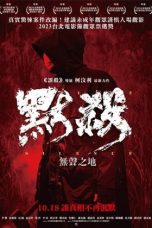- Source: Du Mu
Du Mu (Chinese: 杜牧; pinyin: Dù Mù; Wade–Giles: Tu4 Mu4; 803–852) was a Chinese calligrapher, poet, and politician who lived during the late Tang dynasty. His courtesy name was Muzhi (牧之), and art name Fanchuan (樊川). He is best known for his lyrical and romantic quatrains.
Regarded as a major poet during a golden age of Chinese poetry, his name is often mentioned together with that of another renowned Late Tang poet, Li Shangyin, as the "Little Li-Du" (小李杜), in contrast to the "Great Li-Du": Li Bai and Du Fu. Among his influences were Du Fu, Li Bai, Han Yu and Liu Zongyuan.
Biography
Du Mu was born in the Tang capital Chang'an (modern Xi'an) into an elite family, the Jingzhao Du clan, whose fortunes were declining. His grandfather was Du You, a minister at the Tang court and the compiler of the Tang Dynasty encyclopedia Tongdian. He passed the jinshi ("Presented Scholar") level of the imperial civil service examination in 828 at the age of 25, and began his career as a bureaucrat holding a series of minor posts, first as an editor of at the Institute for the Advancement of Literature. A few months later, he joined the entourage of Shen Chuanshi (沈傳師), a surveillance commissioner, first to Hongzhou, then a year later to Xuanzhou. In 833 he was sent to join Niu Sengru in Yangzhou. In Yangzhou he began to mature as a poet. In 835 he was appointed investigating censor and returned to the capital where, possibly concerned about being drawn into a factional dispute involving his friend Li Gan who had opposed Zheng Zhu, he asked to be transferred to Luoyang. This was granted, and he avoided the purge that followed the Sweet Dew Incident which happened later in the year.
Du Mu held many official positions in various locales through the years, but he never achieved a high rank, perhaps due to enemies made in the factional dispute at the imperial court in 835. In 837 he returned to Yangzhou to care for his younger brother Du Yi who was sick and had become blind, then went to work in Xuanzhou, taking his brother with him. In 838 he was appointed Rectifier of Omission of the Left and Senior Compiler of the History Office, and he returned to Chang'an. In 840 he was promoted to Vice Director of the Catering Bureau, then transferred to the position of Vice Director of the Board of Review in 841. Starting in 842 he was made governor of a succession of small poor rural prefectures, first Huangzhou, then Chizhou and Muzhou. Du was dissatisfied with the appointment and he appeared to blame it on Li Deyu. He began to feel his career was a failure and he expressed his dissatisfaction in his poems.
In 848 Du Mu returned to Chang'an after being appointed Vice Director of Merit Titles and was awarded his old post in the History Office. He was transferred to the post of the Vice Director of the Ministry of Personnel in 849, then was appointed governor of Huzhou in 850 at his own request. He was recalled to Chang'an in 851 to the post of Director of the Bureau of Evaluation and Drafter, and was appointed to the office of Secretariat and Drafter in 852. He fell ill that winter and died before the next lunar year.
Works
Du Mu was skilled in shi, fu and ancient Chinese prose. He is best known as the writer of sensual, lyrical quatrains featuring historical sites or romantic situations, and often on themes of separation, decadence, or impermanence. His style blends classical imagery and diction with striking juxtapositions, colloquialisms, or other wordplay. He also wrote long narrative poems.
= Poetry
=One of his best-known poems is "Qingming Festival" (Qingming Festival is a day of remembrance for the dead when people visit the graves of their ancestors to pay respect.)
Another well-known one is Autumn Evening. It tells of a lonely concubine at the palace whose fan has lost its purpose now that summer has ended. This is taken to be an allusion by the poet of his frustrations at his family's decline in influence. The Cowherd and the Weaver Girl in the poem refers to the story of two separated lovers who can only meet once a year and who were used to name the Altair and Vega stars:
Du Mu enjoyed traveling in the misty mountains of southeast China, especially Xuanzhou, and remembering the fallen Southern dynasties, as exemplified by his poem "Written on the Kaiyuan Temple at Xuanzhou" (Tí Xuānzhōu Kāiyuán Sì 提宣州開元寺):
= Prose
=He wrote a commentary on The Art of War and many letters of advice to high officials.
A twenty-book collection of his prose works, Fan Chuan Wen Ji (Chinese: 樊川文集; pinyin: fán chuān wén jí), survives.
Modern references
In 1968, Roger Waters of the rock band Pink Floyd borrowed lines from his poetry including "Lotuses lean on each other in yearning" (多少綠荷相倚恨) to create the lyrics for the song Set the Controls for the Heart of the Sun from the band's second album A Saucerful of Secrets.
See also
Chinese poetry
Qijue
References
Works cited
Noguchi, Kazuo (1994). "Du Mu (To Boku in Japanese)". Encyclopedia Nipponica (in Japanese). Shogakukan. Retrieved 2017-02-28.
Further reading
Burton, Richard F. Plantains in the Rain: Selected Chinese Poems of Du Mu. Wellsweep 1990. ISBN 9780948454080. This is a bilingual text. The Chinese is in traditional characters.
Francis, Mark. Running Under the Ice: Fifty Selected Poems by Du Mu. Oxcidental Press 2012. ISBN 978-1-4681-2831-4. This is a bilingual text. The Chinese is in simplified characters.
Young David and Jiann Lin. Out on the Autumn River: Selected Poems of Du Mu. Rager Media, 2007. ISBN 0979209153. This is a bilingual text. The Chinese is in traditional characters.
External links
"Ten poems of Du Mu". Archived from the original on 2 September 2004. Included in 300 Selected Tang poems, translated by Witter Bynner
Du Mu's poems (in Simplified Chinese)
Works by Du Mu at LibriVox (public domain audiobooks)
"Du Mu's seven-character truncated verses". Archived from the original on 5 March 2007.
Books of the Quan Tangshi that include collected poems of Du Mu at the Chinese Text Project:
Book 520, Book 521, Book 522, Book 523,
Book 524, Book 525, Book 526, Book 527
Kata Kunci Pencarian:
- (462959) 2011 DU
- Distrik Guichi
- Dinasti Qin
- 800-an
- 2013 DU
- 2006 DU
- 2011 MU
- Du Qinglin
- 2003 MU
- 2009 MU
- Du Mu
- Du Mu (Ming dynasty)
- Mu Du, Myanmar
- Four-momentum
- Yuelu Mountain
- List of Chinese writers
- List of Chinese-language poets
- Du (surname)
- Cow demons and snake spirits
- Three Hundred Tang Poems
The Miracle Club (2023)
A Place Called Silence (2024)
Acid (2023)
Gladiator (2000)
No More Posts Available.
No more pages to load.














